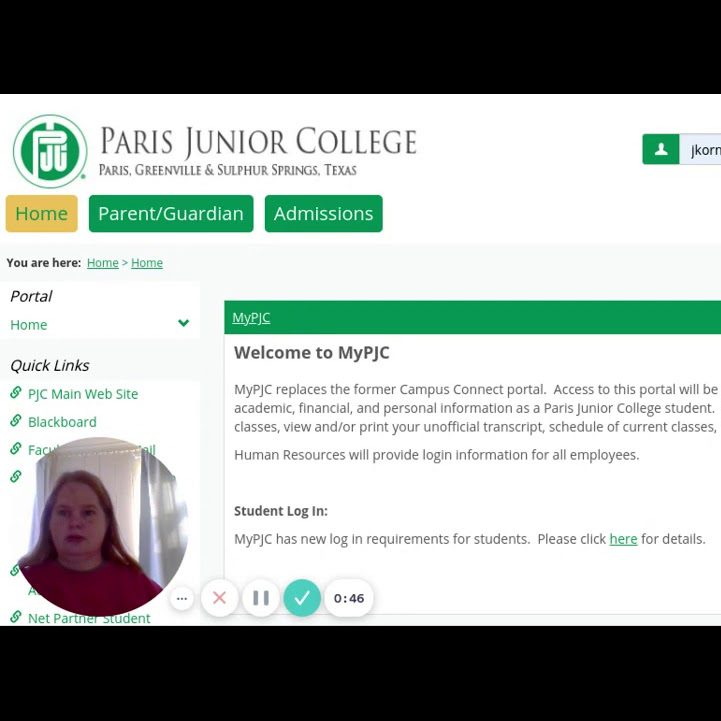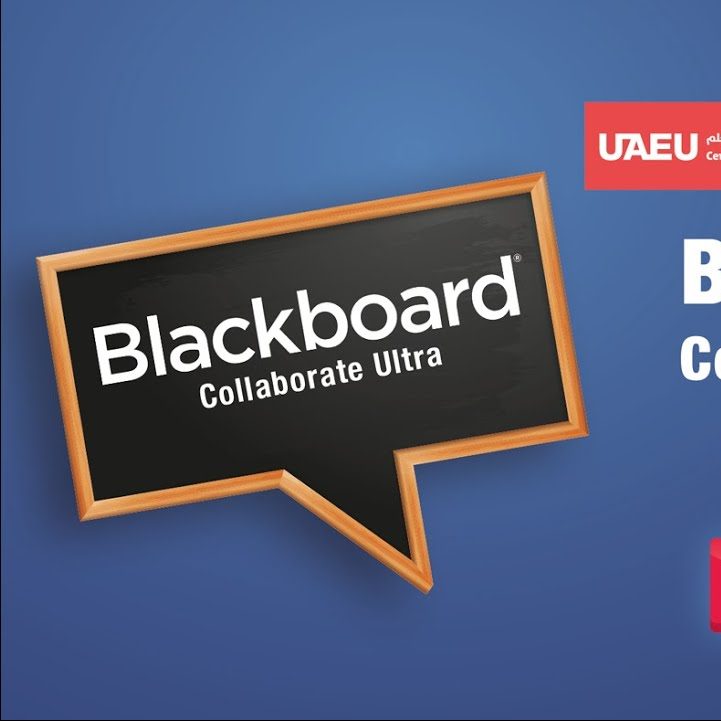If you’re a student or faculty member at Paris Junior College (PJC), you’re likely using Blackboard to engage with course materials, assignments, and discussions. While Blackboard provides an essential platform for online and hybrid learning, many users feel overwhelmed by its myriad features. Fortunately, mastering this powerful tool can enhance your educational experience significantly. In this guide, we’ll explore effective tips and tricks for maximizing your experience with PJC Blackboard.
1. Getting Familiar with the Interface
Your journey in Blackboard begins with understanding its interface. The dashboard serves as your launchpad, displaying all your enrolled courses and important announcements. Familiarize yourself with this layout to access course materials efficiently. The “My Courses” section provides a quick overview of your ongoing classes, helping you prioritize your time and touch base with your assignments.
Explore additional features available on the dashboard, like calendar integration, which consolidates important dates and deadlines. Understanding how to navigate Blackboard’s interface will reduce time spent looking for resources, allowing you to focus more on learning and engagement.
Customizing Your Profile
Personalizing your profile can make your Blackboard experience feel more tailored to your preferences. Start by updating your profile picture, which can make communication feel more personal, especially during discussions. Additionally, consider adjusting your notification settings according to your preferences. For example, you can choose to receive email notifications for announcements, due dates, or grades. A well-customized profile enhances your interaction within the platform, making it easier to stay organized and informed.

Effectively Managing Course Materials
Organizing Your Folders
One effective way to stay on top of your coursework is by organizing your course materials. Create folders within Blackboard for different subjects or types of assignments, such as readings, projects, or notes. This approach ensures that all relevant documents are grouped together, allowing for quick retrieval when you need them.
Also, consider labeling your files clearly and consistently. Using a standard format (like “CourseName_AssignmentTitle_Date”) will make it easier to find what you’re looking for amidst a plethora of materials. Efficient organization transforms Blackboard from a chaotic repository into a streamlined resource.
Utilizing the Content Calendar
Blackboard’s content calendar is an underutilized but powerful feature. It gives you a visual overview of assignments, discussions, and due dates. When you enter the date range for your course, you’ll see all important dates highlighted, making it simple to track deadlines at a glance.
To maximize this feature, set personal reminders for crucial deadlines. You can even sync this calendar with your Google Calendar or other planning tools to centralize your schedule. Staying ahead of deadlines is vital to managing your workload effectively, and this feature can greatly facilitate that process.
Enhancing Communication
Engaging in Discussion Boards
Discussion boards within Blackboard serve as excellent platforms for interacting with classmates and instructors. Use this feature to pose questions, share insights, and discuss course materials. When participating, post thoughtful responses that contribute to the discussion, and don’t hesitate to engage with your peers’ comments.
Be proactive; if you need clarification on a subject, use the discussion board to ask. This not only aids your understanding but can help your classmates facing similar questions. Regular interaction fosters a sense of community and enhances your learning experience.
Sending Messages and Notifications
Communication in Blackboard isn’t limited to discussions. The messaging feature allows you to contact your instructors and classmates easily. Send direct messages for quick inquiries or clarification on assignments. This tool is particularly useful if you have questions that may not necessarily require a whole-class discussion.
Also, don’t forget about notifications. Set up alerts for when someone replies to your posts or when new content is added to your courses. Staying informed helps you remain engaged and ensures you never miss crucial updates.

Harnessing Learning Tools
Exploring Built-in Resources
Blackboard includes various built-in resources designed to enhance your learning experience. Familiarize yourself with these tools; resources like journals, blogs, and wikis encourage collaboration and self-reflection. Utilizing these can deepen your understanding of course material and provide additional avenues for expressing your thoughts.
Consider keeping a personal journal within the platform. It’s an excellent way to reflect on your learning journey, jot down ideas, and take notes on your readings. This tool not only helps process information but also aids in preparing for exams and discussions.
Utilizing Third-Party Integrations
Many third-party tools integrate seamlessly with Blackboard, adding even more value to your experience. Platforms like Google Drive, Dropbox, and Turnitin can enhance collaboration and streamline submissions. Google Drive, for example, allows for easy file sharing and group projects directly within Blackboard, making it simple to work with classmates in real-time.
Be diligent about exploring these options. Your instructors may also provide links to educational resources relevant to your coursework. Utilizing external tools can diversify your learning and help reinforce key concepts through interactive platforms.
Staying Organized and Focused
Creating a Study Schedule
Establishing a study schedule can transform your academic experience. Allocate specific times in your week dedicated exclusively to reviewing materials on Blackboard or completing assignments. By adhering to a consistent schedule, you reinforce good study habits and reduce last-minute stress.
When crafting your schedule, make sure to include breaks. Short intervals of rest can rejuvenate you and enhance focus. Incorporate your calendar tools to remind you of study sessions. Consistent effort is crucial for long-term success, and a well-structured study plan lays the groundwork.
Setting Goals for Each Course
Setting specific, measurable goals for each course can significantly impact your academic performance. Outline objectives like completing readings ahead of time, participating in discussions more frequently, or achieving certain grades on assignments. Use the goals as benchmarks to keep yourself accountable and motivated.
Check-in with your goals regularly. Reflect on your progress, adjusting your objectives as necessary. This exercise reinforces commitment and gives you a sense of accomplishment as you see yourself working toward your educational aspirations.

Seeking Help and Resources
Utilizing Student Support Services
PJC offers various student support services that can be invaluable resources as you navigate Blackboard. Whether you need technical assistance or academic support, reach out to services such as IT support, tutoring centers, or academic advisors. Don’t hesitate to ask for help; utilizing these resources not only enhances your understanding of the platform but fuels your overall academic journey.
If you encounter issues with accessing course materials or facing difficulties within Blackboard, contacting support can quickly resolve these problems. Familiarizing yourself with these services beforehand will provide you with the knowledge you need to access help swiftly.
Joining Study Groups
Study groups can be incredibly beneficial for mastering course material. Not only do they foster community and support, but they also enable collaborative learning. Consider forming study groups with classmates to discuss readings, tackle assignments, and prepare for exams. Programs like Blackboard offer a platform to communicate and share resources with your peers in the context of group studies.
Additionally, sharing perspectives in a group can help solidify your understanding of concepts. Engaging with others enhances learning, and discussing course content with peers allows for a better grasp of complex topics.
Reflecting and Adapting Your Approach
Continuous Self-Assessment
Periodically taking the time to reflect on your course experiences within PJC Blackboard can yield valuable insights. Assess what strategies have been most effective for your learning. Ask yourself questions about the tools you utilize, the interaction you have with peers, and your level of engagement.
By identifying patterns in your learning approach—what works and what doesn’t—you can adapt your studying strategies for future courses. This reflective practice reinforces your commitment to continual improvement and lifelong learning.
Staying Open to New Features and Updates
As technology evolves, so does Blackboard. Stay informed about updates and new features. Regularly check the platform for enhancements that may improve your experience, as institutions often introduce new tools based on student feedback.
Being open to change and innovation can keep your learning experience fresh and effective. Flexibility helps you adapt to new tools that can enhance collaboration, streamline assignments, and ultimately lead to academic success.
Empowering Your Educational Journey
Maximizing your experience with PJC Blackboard is about more than just navigating a platform; it’s about empowering your entire educational journey. Utilize the tools, features, and resources available to enhance your learning experience. By actively engaging with the system, participating in discussions, organizing your materials, and reaching out for support, you’ll position yourself for academic success.
Remember that your education is a collaborative process. By fostering connections with peers, faculty, and resources, you’re not only enriching your own learning experience but also contributing to others’ educational journeys. Embrace the possibilities that PJC Blackboard offers, and move forward with confidence and curiosity in your academic pursuits.
